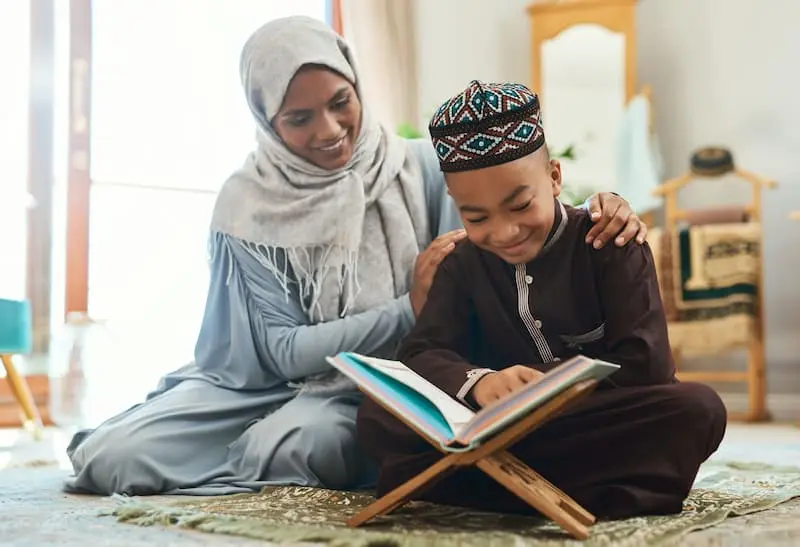The Liberal government wants to make homeownership more accessible for Canadian Muslims by introducing halal mortgages. But what is a halal mortgage, and why is it needed?
The Canadian federal budget revealed a plan to offer “alternative financing products, including halal mortgages,” to “enable Muslim Canadians, and other diverse communities, to further participate in the housing market.” More details of what the plan would look like are expected this fall. Livabl spoke to S. Zuhair Naqvi, the CEO of EQRAZ, an Islamic home financing institution based in Oakville, for more insight.
What is a halal mortgage, and why is it important to Muslim Canadians?
A halal mortgage in Canada is a home financing option that complies with Islamic law or Shariah principles. In Islam, charging or paying interest (riba) is prohibited, so traditional mortgages involving interest payments are not considered halal. Instead, halal mortgages typically involve a co-ownership arrangement between the buyer and the financial institution. The financial institution buys the property and then sells it to the buyer at a higher price, with the buyer making regular payments until they own the property outright.
The Canadian government has taken several steps to make halal mortgages available to Canadians. One approach has been to support initiatives of financial institutions and organizations that offer Shariah-compliant financing options. Additionally, government agencies may provide guidance and regulatory frameworks to ensure halal mortgages adhere to Canadian laws and standards.
In some cases, government programs or incentives may be available to promote affordable housing options, including halal financing, to a broader range of Canadians. However, it’s important to note that while the government may support the availability of halal mortgages, the actual provision of these mortgages is typically offered by private financial institutions or specialized lenders.
There are approximately two million Muslims in Canada, and we’ve done a lot of market research on this,” Naqvi said. “So, about three-quarters of Muslims are devout, and one quarter are more secular, less devout. But three-quarters care immensely about it being a halal mortgage, so it’s a huge and pent-up market.”
“The demand is pent-up because these people have savings. They have the down payments available, the credit scores, and good incomes, and they’re waiting for a viable mortgage company to come along so they can get this mortgage. So obviously, it’s important because the Muslim population is a growing portion of the Canadian population.”
“According to Statistics Canada, Immigration Canada, and other authorities, we expect that the Muslim population will be about eight to nine per cent of Canada in about ten years. That’s a very sizable population. So, it’s important that a HELOC mortgage and other health financing options come along so this fairly large segment of the population can enjoy home ownership, just the way their non-Muslim fellow Canadians do.”
What are the different types of halal mortgages?
Several different types of halal mortgages are available to individuals seeking Shariah-compliant financing to purchase a home. Some of the common types include:
Murabaha: This type of halal mortgage involves the financial institution purchasing the property and then selling it to the buyer at a higher price, which includes a profit margin. The buyer agrees to pay the higher cost in installments over an agreed-upon period, effectively making it a deferred sale arrangement.
Ijara: In an ijara arrangement, the financial institution purchases the property and then leases it to the buyer for a specified period. The buyer pays rent to the financial institution, and at the end of the lease term, they may have the option to purchase the property at an agreed-upon price.
Diminishing Musharakah: This is where the financial institution and the buyer enter a partnership to purchase the property together. The buyer gradually buys out the financial institution’s share in the property over time through regular payments, leading to full ownership.
These are some of the main types of halal mortgages available, each with its own structure and mechanisms for ensuring compliance with Islamic principles. The choice of which type to pursue may depend on factors such as individual preferences, financial circumstances, and the offerings of specific financial institutions.
Breaking down halal mortgage products
Naqvi explained how two of the most well-known halal mortgages work.
“There are three types of products out there, of which two are very similar,” Naqvi said. “One is called the Murabaha product. And the other one is called the diminishing Musharakah, a diminishing partnership product. Say, for example, you come to me for a $1 million loan for a Murabaha mortgage. As a bank, I cannot give you the $1 million and charge interest. So, I will buy the house first for $1 million.”
“Then I will add the 25 years of profit, which is the amortization period, and sell you the house five minutes later for one point for me. Now, you and I will agree that you pay $1.4 million in equal installments over 25 years. The payment becomes the same amount, but the structure is completely different because now it’s all principal; there’s no profit. There’s no interest here because you effectively borrow $1.4 million of principal. After all, I sold you the house for $1.4 million.”
“The other product is a diminishing Musharakah partnership in which I act as the lender and you as a borrower; we purchase the house as partners. If it’s a 20 per cent down payment, you will pay 20 percent, and I will pay 80 per cent. Now I own 80 per cent of the house; you own 20 per cent.”
“Every month, you pay me a rental instead of interest. You pay me rent for using my portion of the house, which becomes like an interest payment, but it’s a rental. So, it’s halal. Then, instead of paying principal, you purchase a small slice of the house from me every month, which becomes like a home purchase payment.”
“Principle is replaced with a home purchase payment where you buy a small slice of the house, and interest is replaced with a rental payment. And then we follow the same amortization and payment schedule as a conventional mortgage.”
How EQRAZ developed its product structure for halal mortgages
“We developed our own product structure over five years, “Naqvi said. “And we got it approved by the conveyor of the Sharia council. Our cross-product structure is a third kind of Sharia-compliant product structure that complies with all Canadian regulations.
“We have already launched and have funding from a Canadian bank, so we don’t need the government to change any laws with our product. We have developed a product that works within Canadian law. The law does not need to change for Muslims to have home ownership. The real benefit from this announcement is that it will encourage the banks to pay more attention to us, review our product and infrastructure, and give us funding a lot more willingly than they have been in the past.”
According to its website, “EQRAZ’s Murabaha mortgage allows customers to close their mortgage at any time by paying off only the remaining principal and approximately three months of profit as a fee. The title belongs only to [the customer], providing peace of mind that the home is truly [theirs]. EQRAZ’s funding sources are 100% halal, received through Shariah-certified, AAOIFI-compliant Wakala agreements.”
Why can’t conventional banks easily offer halal mortgages?
“Major banks cannot offer it easily because they will not be Sharia compliant,” Naqvi said. That’s because the issue is not just the law. In halal mortgages and finances, the lender is subject to two authorities, not one. They’re subject to the Canadian regulator, and they’re subject to the halal Sharia board of the bank.”
Can non-Muslims apply for a halal mortgage, and why do they cost more?
There is a perception that halal mortgages are cost-free due to their lack of interest, which has triggered the question of whether non-Muslims can apply for halal mortgages. Naqvi stated that all are welcome to apply for halal mortgages but went on to explain that non-Muslims already have access to a less expensive product with traditional mortgages.
“The conception that needs to be corrected is that interest-free does not mean cost-free,” Naqvi said. “Actually, in halal mortgages, interest is replaced by a profit based on a background halal mechanism, and our mortgages are more expensive than conventional interest-bearing mortgages. I don’t see that there’s any incentive for non-Muslims to take this on and take a more expensive product when they have access to the cheaper product.”
Halal mortgages are more expensive because of the risk involved for the lender. “The transaction is structured in such a way that the lender takes on more risk, and they’re sharing that risk with the borrower,” Naqvi said. “In conventional interest-bearing finance, you give the loan to the borrower, and all the risk is with them.”
“That being said, we, as a HELOC mortgage provider, have very narrow margins. We add just about a percent to cover our costs. Everything else goes to the bank that is funding us. As the bank gives us cheaper financing, we will not increase our margin — we will keep our margins the same and pass the savings on to the customer. It’s not about profits. It’s about a genuine religious, ethical, and social obligation. People like me believe that our religion will reward us for doing this.”
“It’s more of a mission than a business opportunity. I focused on making sure that this is a profitable business opportunity because that’s how I bring the funding — I must satisfy the profit lenders that will be working for us. So yes, indeed, it is a very profitable opportunity. But our motivations are that we want to supply and make accessible housing available to our fellow Muslim Canadians.”









